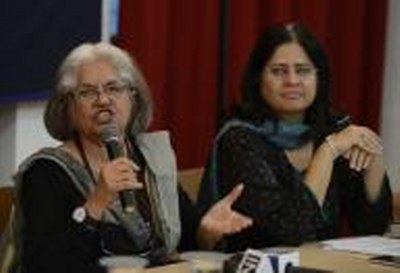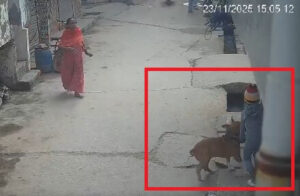Indira Jaising seeks live streaming of SC proceedings in important cases
New Delhi, Jan 18 : Senior lawyer Indira Jaising on Thursday moved the Supreme Court for live streaming and video recording of the court proceedings of cases of national importance that have a bearing on a large section of people.

Jaising in her PIL has sought “live streaming and/or video recording of Supreme Court cases of national importance that impact the public at large”, basing her PIL on the right to receive information under Article 19(1)(a) and the principle of open courts and access to justice as protected under Article 21.
Jasing in the afternoon mentioned the matter before the bench of Chief Justice Dipak Misra, Justice A.M. Khanwilkar and Justice D.Y. Chandrachud seeking its permission to file the petition, which the bench permitted.
Jaising is seeking live streaming of the court proceedings of the important matters being heard or will be heard by the constitution bench, including challenge to the validity of Aadhaar Act and challenge to the practice of prohibiting women in the age group of 10 to 50 years from entering Sabarimala temple.
Besides this, other important cases listed by the senior counsel include hearing on petitions seeking to decriminalise homosexuality, challenge to discriminatory adultery law that only punishes men but spares women in extra-marital relationships and the rights of Parsi women to attend community’s religious ceremonies and rituals after they have married someone outside the Parsi religion.
The PIL says that live streaming in important cases impacting the lives of the public at large would inspire confidence in the judiciary.
Live streaming would also help in avoiding “misinformation and disinformation” of the top court proceedings, and would enable citizens who are “unable to be present in the Court due to social, economic, physical or other constraints but are impacted” by its decisions.
Referring to the cardinal principle of law that justice should not only be done, but also seen to be done, Jaising said that the best possible manner to achieve this goal is to live stream the proceedings in important cases so that arguments of all counsels and the interaction between the judges and the lawyers in the course of the hearing is “recorded accurately and without distortions”.
Saying that judges have the discretion to decide the cases that should be recorded, the PIL has cited the guidelines provisions that permit live streaming and video recording of their proceedings, including those in UK, Canada, Australia, New Zealand, European Court of Human Rights, International Criminal Tribunal for the former Yugoslavia.
Jaising in her PIL says that the live telecast of Lok Sabha and Rajya Sabha proceedings since 2003 and 2004 respectively has generated awareness amongst the people about the work of their elected representatives, as well as enhanced transparency in the Parliamentary processes.
“There is no rational reason as to why the same should not be done for cases of constitutional and national importance that impact the public at large,” the PIL says.
This endeavour would be of significant archival value, and be an important educational resource as well, Jaising says in her PIL.
IANS





